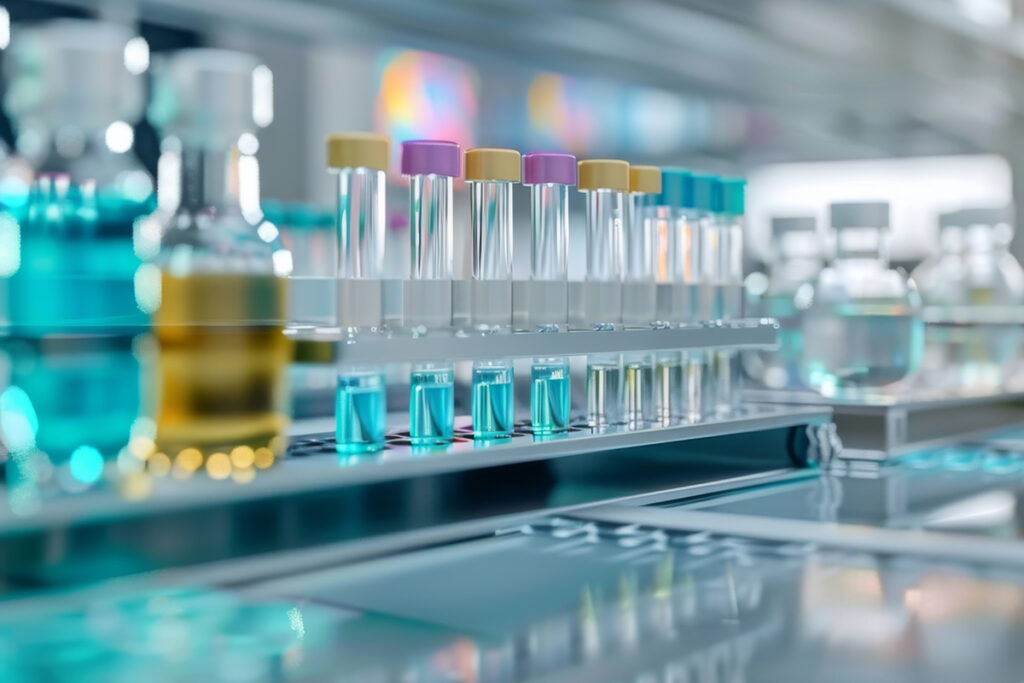The Key Role Specialty Pharmacies Play in the Adoption of Biosimilars
While most people are familiar with generic drugs, fewer understand biosimilars and the significant role they play in providing cost-effective alternatives to specialty biologic medications.
Biologic drugs are made from a living system, such as yeast, bacteria, or animal cells and are used to treat complex, chronic, and costly conditions such as cancer, psoriatic arthritis, Crohn’s disease and many more. A biosimilar is like a generic form of a biologic drug, but with some key differences. Unlike a generic drug which is an exact copy of the name brand drug, biosimilars are not exact copies of a name brand biologic drug. Biosimilars are made from living organisms that are similar in structure and function to their reference biologic medication, while offering the same safety and efficacy as the reference drug.
First approved by the US FDA in 2015, the global biosimilar market is expected to climb from $25.1 billion in 2022 to about $1.3 trillion by 2032. Specialty pharmacies and specialty infusion providers like California Specialty Pharmacy (CSP) are key drivers in the adoption of biosimilars because their pharmacists provide patients and providers with expertise and trusted counsel on the safe and effective use of biosimilars. Specialty pharmacies also collaborate with payers to help educate provider networks on both the clinical and cost benefits of prescribing biosimilars.
Financial Benefits of Biosimilars
The introduction of biosimilars significantly reduced the price of biologics both nationally and globally, and they continue to be an important tool to reduce healthcare costs. CSP works with manufacturers to offer the best price on biosimilars, but biosimilars’ prices are impacted by market share and the pace of uptake.
If biosimilars are slow to be adopted and slow to obtain market share, patients, payers, and hospitals may not initially benefit from a cost reduction compared with the cost of biologics. For example, according to IQVIA, the 2016 release of Infliximab had a very slow uptake of biosimilars in the three years after it entered the market. In contrast, biosimilars for bevacizumab, trastuzumab, and rituximab showed significant uptake in the first three years after entering the market, and stakeholders therefore saw a more rapid cost reduction.
Ultimately, the speed of a price reduction for a reference product and its biosimilars is based on competitor biosimilars entering the market – this is a simple supply and demand equation. The average wholesale price (AWP) of a reference product and its biosimilars typically trends downward as more biosimilars enter the market.
| rituximab (RITUXAN) | AWP (Price ($) per dose) | |||||
| rituximab | Rituxan | Genentech | J9312 | 100 mg/10 ml | $1,127.42 | 10 mg |
| rituximab-arrx | Riabni | Amgen | Q5123 | 100 mg/10 ml | $860.16 | 10 mg |
| rituximab-pvvr | Ruxience | Pfizer | Q5119 | 100 mg/10 ml | $860.16 | 10 mg |
| rituximab-abbs | Truxima | Teva | Q5115 | 100 mg/10 ml | $1,014.66 | 10 mg |
(Table source: RedBook AWP accessed 10/1/2024)
While the manufacturers of reference medications (biologics) may offer significant rebates to payers at the launch of a biosimilar, those rebates are not sustainable when payers eventually include biosimilars in their formularies. Biosimilars usually end up in a better formulary position than the reference medication and can be less costly for patients. The result is that a patient’s out-of-pocket percentage may be the same or better with a biosimilar vs. a reference medication, without a drop in the quality of the medication.
Provider Confidence in Biosimilars
Some providers are still hesitant to prescribe biosimilars despite the nearly a decade they’ve been available. This may be due to a general lack of understanding and information about biosimilars. A U.S. National Survey of 507 providers showed that fewer than half had a baseline understanding of the key elements of biosimilarity.
The survey’s respondents also said that factors including formulary status, financial savings to the patient, pharmacovigilance, patient experience, and education on the FDA approval process all impacted their willingness to prescribe a biosimilar. Additionally, while biosimilars may provide a cost saving to patients, they may simultaneously add administrative costs to the provider because of the need for prior authorizations and the administrative/logistical steps needed to change a patient’s therapy, which can dissuade some providers from prescribing them.
To be confident in prescribing biosimilars, providers undoubtedly need more education and information on the medications themselves as well as tools and solutions for managing the impact biosimilars can have on practice operations. Specialty pharmacies and payers are sharing their knowledge of biosimilars with providers and providing patient and operational support to help alleviate these challenges.
How Specialty Pharmacies Can Help
To improve the adoption of biosimilars for complex and chronic conditions, CSP brings a holistic perspective to conversations with healthcare providers, payers, and other stakeholders. Specialty pharmacy staff have the expertise to lead conversations from the payers’ point of view while also considering the manufacturer’s perspective.
Specialty pharmacies like CSP also help educate providers about the availability and benefits of biosimilars, including providing regular updates on recently approved biosimilars, to help physicians and other healthcare providers prescribe with confidence.
CSP has a streamlined process to dispense biosimilars:
- Interchangeable (as designated by the FDA) biosimilars: If allowed per state and federal regulations, specialty pharmacists can switch a prescribed biological product to a biosimilar without authorization, much like switching a brand prescription to a generic at a retail pharmacy.
- Non-interchangeable biosimilars: These require a new prescription from a provider and possibly a new authorization from a payer. CSP’s team works to receive the authorization and quickly fill the prescription.
Specialty pharmacies like CSP offer important benefits to providers and patients that can help improve the utilization of biosimilars, including patient education and support, medication management programs, patient adherence programs, and financial assistance.
The potential of biosimilars is vast and the benefits numerous, but strong adoption is needed for that potential to be realized. Proactive outreach and patient-focused support from specialty pharmacies – in collaboration with providers – are key to that adoption. CSP and other specialty pharmacies have a crucial role to play in helping providers gain confidence in prescribing biosimilars and bringing their potential benefits to the patients who need them.
References:
- Table source: RedBook AWP accessed 10/1/2024
Legal Disclaimer:
The content provided on this blog is for informational purposes only and does not constitute medical advice, professional advice, or a recommendation regarding any particular course of treatment. While we strive to provide accurate and up-to-date information about the role of specialty pharmacies in the adoption of biosimilars, the information shared here is based on publicly available sources and is not intended to replace professional medical consultation or advice.
The use of biosimilars and other medications should always be discussed with a healthcare provider who can evaluate the appropriateness of any therapy based on individual circumstances.
By accessing this blog, you agree to hold harmless the author, publisher, and any associated parties from any claims, liabilities, or damages arising from the use or interpretation of this content.
@2024 California Specialty Pharmacy, LLC. All rights reserved.


